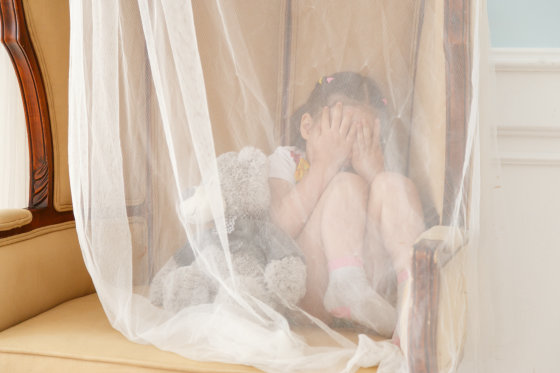The mental and physical illnesses experienced by sexually abused children are linked

For those who have experienced sexual abuse as a child, the effects of the abuse are manifested in many ways throughout their lives. A new study shows that there is a link between those who have been abused years after sexual abuse and their tendency to visit hospitals for mental illness and genital and urinary problems. This study highlights the need for a more comprehensive approach rather than treating either the mind or the body.
Childhood sexual abuse, girls' genitourinary diseases, and psychiatric comorbidity: A matched-cohort study. --PsycNET
Childhood sexual abuse: Mental and physical after-effects closely linked | EurekAlert! Science News
https://www.eurekalert.org/pub_releases/2020-09/uom-csa092120.php
Studies have shown in recent years that people who have been sexually abused as a child have long-term effects. A 2018 study first showed the long-term effects of child abuse in 1764 girls who had experience of child abuse and had 2.1 times more urinary problems than in the target group. It became clear that he had 1.4 times more genital problems.
Pascale Vézina-Gagnon, a PhD candidate at the University of Montreal's Department of Psychology, is under the supervision of Dr. Isabelle Daigneault and has mental health problems, as children who have been sexually abused are also prone to mental health problems. We hypothesized that it was related to health problems and conducted an investigation.
Vézina-Gagnon, who received medical data from the public health authorities in Quebec, Canada, said about 661 girls aged 1 to 17 years old who had been sexually abused and 661 girls who had not. I made a comparison. The subjects of the survey were children who were examined and hospitalized between 1996 and 2013, and all the data were anonymized. Sexual abuse also includes touching the genitals, oral sex, sexual intercourse, voyeurism, and prostitution.

The analysis found that sexually abused girls were more likely to visit the hospital for psychiatric problems such as anxiety, mood disorders, schizophrenia, and substance abuse than the control group. In addition, this tendency was consistent with the tendency of abused people to visit hospitals due to genital and urinary problems several years after the abuse. The more you visit or be hospitalized for multiple mental illnesses, the easier it is to report genital and urinary problems. On the other hand, 62% reported genital problems and 23% reported urinary problems, further studies suggesting that this difference may be related to factors not considered in the study. Is needed, says Vézina-Gagnon.
'There are two hypotheses about the emotional and behavioral causes that this discovery explains,' Vézina-Gagnon said. First, people who experience sexual abuse and have mental health problems become more sensitive to genital and urinary discomfort and problems, making it easier to go to the hospital. The other is that due to 'avoidance behavior', people cannot hear even if they have symptoms, and the problem worsens and they visit a hospital. Gynecological examinations are often reminiscent of abuse experiences in terms of undressing, imbalanced power relationships with doctors, and pain, and are intolerable to those who have experienced abuse, Vézina-Gagnon said. I will explain.

Based on the results of this study, Vézina-Gagnon emphasizes that it is important to consider the relationship between physical and mental health. In order for abusive people to recover from trauma, they need a holistic approach rather than trying to treat either the body or the mind.
Related Posts:
in Science, Posted by darkhorse_log







